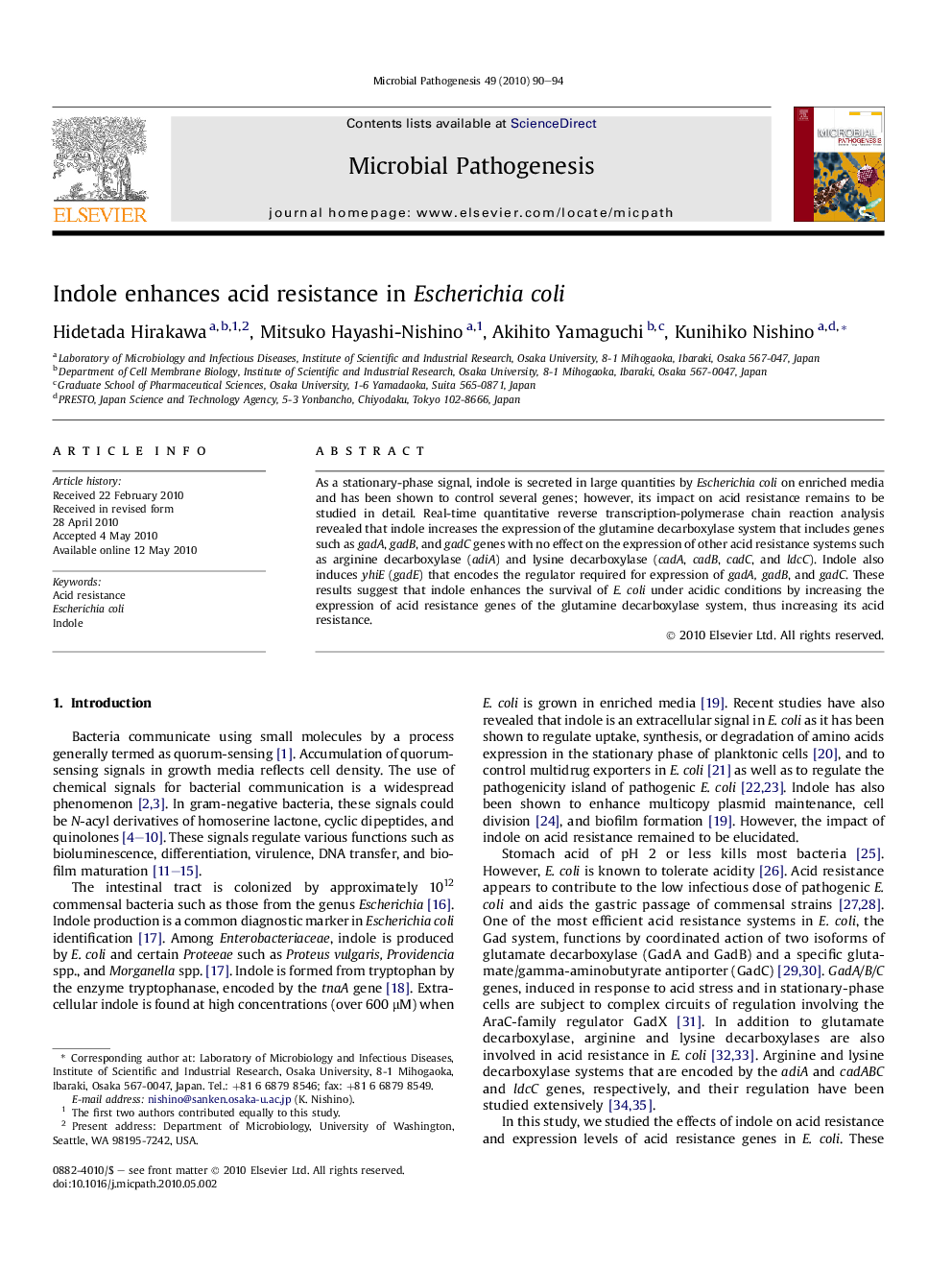| Article ID | Journal | Published Year | Pages | File Type |
|---|---|---|---|---|
| 3416884 | Microbial Pathogenesis | 2010 | 5 Pages |
As a stationary-phase signal, indole is secreted in large quantities by Escherichia coli on enriched media and has been shown to control several genes; however, its impact on acid resistance remains to be studied in detail. Real-time quantitative reverse transcription-polymerase chain reaction analysis revealed that indole increases the expression of the glutamine decarboxylase system that includes genes such as gadA, gadB, and gadC genes with no effect on the expression of other acid resistance systems such as arginine decarboxylase (adiA) and lysine decarboxylase (cadA, cadB, cadC, and ldcC). Indole also induces yhiE (gadE) that encodes the regulator required for expression of gadA, gadB, and gadC. These results suggest that indole enhances the survival of E. coli under acidic conditions by increasing the expression of acid resistance genes of the glutamine decarboxylase system, thus increasing its acid resistance.
